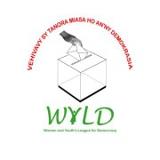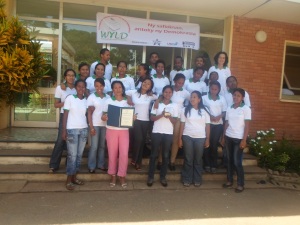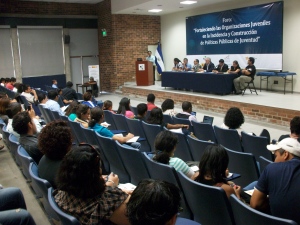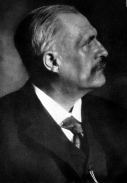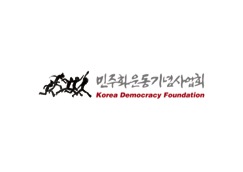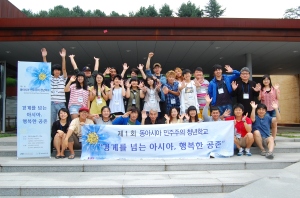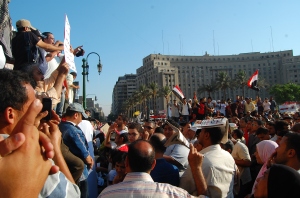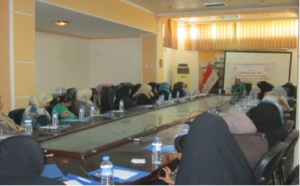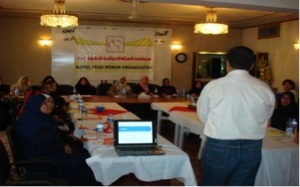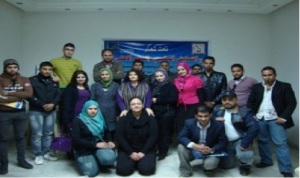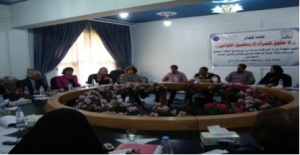Mohammad Musa Mahmoudi, Executive Director of AIHRC, Afghanistan, is taking part in the Civil Society Pillar of the Ministerial Conference. He asked to share with us, and with you, his expectations from the Conference. He tells us about the organization’s experience in Afghanistan, and what he hopes to achieve in the Conference:
Ulaanbaatar Conference and my reflection,
I am in Ulaanbaatar to attend the VII Ministerial Conference of the Community of Democracies. The conference brings together more than 100 civil society and democracy activists under one roof to present their views on and debate both progresses and challenges of embarking on the path of democracies. Young democracies are striving to institutionalize democracy in many fronts. Countries that embarked on the path of democracies recently have found the job daunting, if not impossible. Young democracies like Afghanistan, Egypt, Lybya, Tunissia, Iraq are not praised by their progress despite their efforts toward democracies. In this trip, I happened to obtain a Freedom House map for 2013, where it colored these countries alike or similar with some degree of differences as not free or partly free countries. There is little doubt that they have either tried alone or with the help of the international community to bring in and apply all institutions democracy requires. Disappointingly, the results are much lower than expected. Why is it so? Democracy has not been easy to be applied successfully in all part of the world?
In my view, struggle toward democracy is a noble effort and worth trying it again and again. Failure should not persuade us to hasty conclusions. However, we need to be more aware of the context, past legacy, structural and symbolic challenges and public ignorance about democracy in the process of institutionalizing democracy. With having these in place, we better try to perfect our artwork of democracy.
Generally, in substituting any other forms of government with democracy, by rushing too much, we often fail to deal with the legacy of the past. Attentions, resources and energies are often put to develop a new constitution, go hastily to referendums and hold elections. In some part, development of political parties, investment in civil society and freedom of press is there, but we fail to effectively and adequately attend to the legacy of the past, both the mind set and structures. In this move, we often try to forget that we may have removed the symptom, but still need to cure the root canal of the problem. Our experience in Afghanistan shows this clearly. According to the checklist and with the help of the international community we almost walked perfectly on the path, nonetheless we still far from a democracy. We held two rounds of elections, developed free press and civil society, a modern constitution, free market economy and rapidly growing education, universal suffrage, national mechanism for protection and promotion of human rights, however, it is on not free country list of Freedom House.
Nothing can explain this but one thing, we failed to attend to the legacy of the past; adequately and effectively.
In establishing democracies other than frequent, free and fair elections, development of civil society, universal suffrage, and all those elements that authors from Dhal (1998) to Charles tilly (2007) and Fareed Zakaria(1997) speaks about, we lagged behind to establish rule of law system, fight the rampant corruption effectively, provide effective, swift and accessible justice to citizens and provide public goods.
In developing a democracy, mitigation of years of propagation against democracy and anti-democratic structures and mind sets is of paramount importance. We strongly need to embark on a continuous, more robust, expanded and effective civic education program. The program must be with a vision for long term and with enough force to mitigate decades of anti-democracy propaganda and structure. Here where civil society could play a strong role and that role must be encouraged.
In Afghanistan, anti-democracy forces have for decades run propaganda against democracy and depicted it with immorality and anti-religion type of system. To dismantle the propaganda, there is a need for continuous and long term civic education and work for perfection of efforts towards democracy in Afghanistan.
In Afghanistan and mostly young democracies, we also found another flaw in dealing with the anti-democratic structure of the past. We let anti-democracy elements monopolize unfairly, often with intimidation and fraudulent politics the democratic process, elections and other opportunities. They used democracy to remain in power while openly challenge democracy by their action and speeches. Our parliament could be an illustration of that. MPs that used democracy to rise to power, now openly are preaching against democratic values and freedom.
We also know from our experience in Afghanistan that democracy is inefficient in dealing with corruptions, weak rule of law, weak justice system, and absence of order, market failure and inequalities. That is why whenever there is regime change, and after embarking on democracy there is protest against and un-satisfaction with the new government, that has legitimately as the outcome of the process the majority wanted took the power.
I visited Egypt last December and found ordinary people with a sour and bitter feeling toward the outcome of their votes in election. I met with Civil Society people there and they were worry of the development there. I was troubled to see that people, civil society and business people were alike unhappy of the outcome of their decision of regime change.
Of course it does not in no way means and justifies that life under authoritarian regime is better, of course not, I repeat it is not better in any possible ways. I lived under Taliban and know the brutality of a regime that was ruling Afghanistan until late 2001. During the Taliban, majority of Afghans were wishing only if Taliban could be somehow removed, there was no other wishes though they were hungry, in need of food and medicine. But after 12 years and with Taliban ousted from the power, we are now getting other wishes. Now they are demanding quality education, better job opportunities, justice, and rule of law, security and order. What happened to this people, people and their demands are changing. Democracy is about change now.
I also visited last year Azerbyjan, and Tajikistan, they live under authoritarian regime. The governments are efficient in providing public good, people have quality road, better housing, security and probably food. But to me they seemed much worrisome, unsatisfied and poorer than Afghans. They were not as free as Afghanistan citizen, a stark difference I could notice.
So, I must admit that the daunting task of substituting despotism of any kind by democracy has proved challenging, despite the growing number of countries embracing them. That is why I am eagerly and with enthusiasm looking forward to these three days of conference, the lessons we have learned and how we can share them in this forum. I am looking forward to hearing the debate, and contributing to it.

